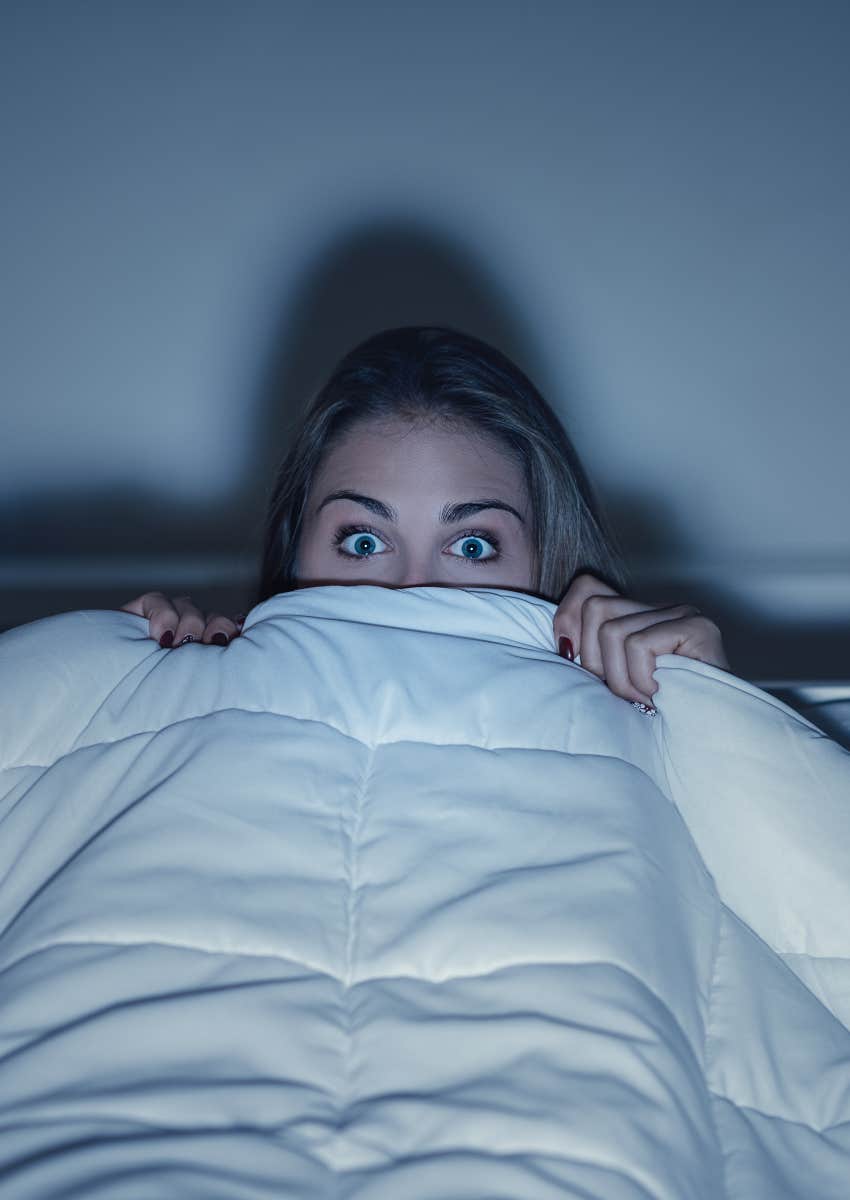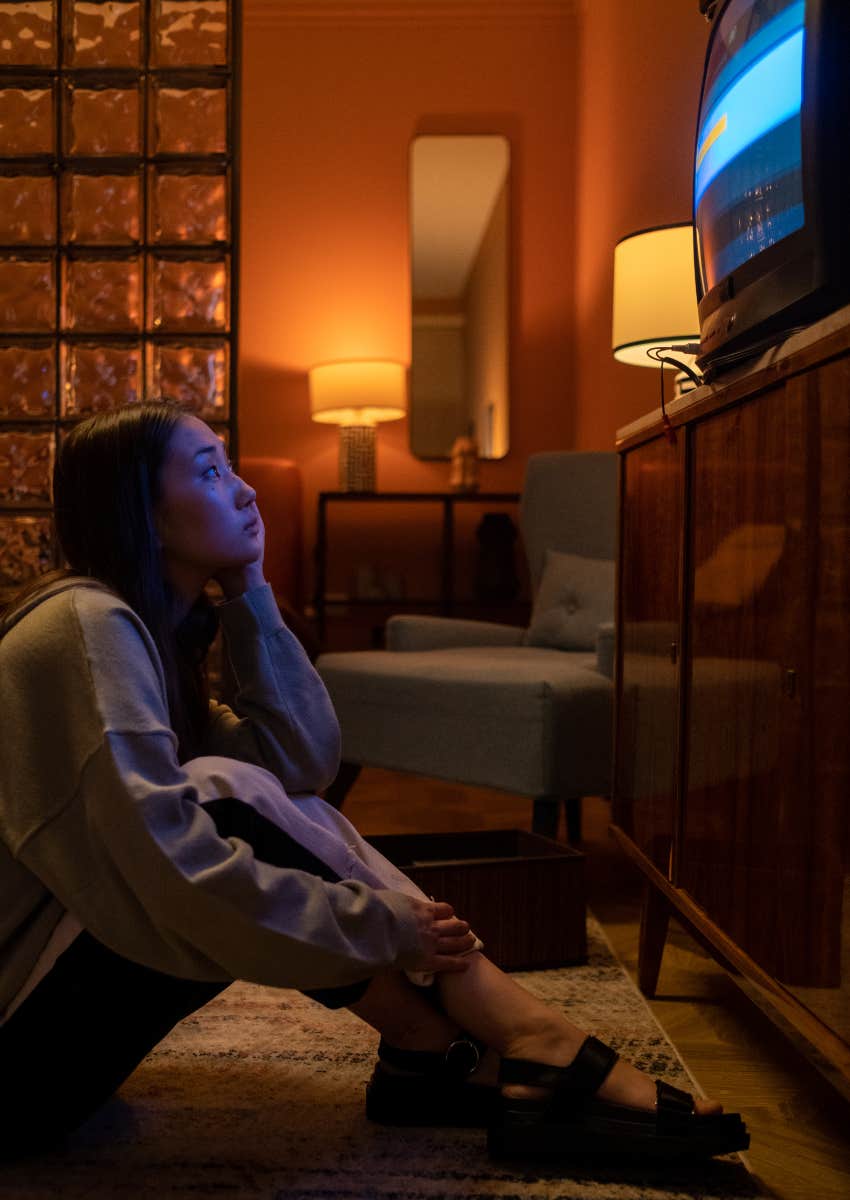3 Genres Normal People Binge-Watch That Wise People Avoid Putting On Their TVs
Don't tell anyone, but I watch all three...
 MAYA LAB / Shutterstock
MAYA LAB / Shutterstock We all have our guilty pleasure TV shows. Something we can sit down and watch while we turn our brains off after a long day of work. However, what you prefer to watch may be affecting your brain whether you realize it or not, which is why Manifestation and Mindset Mentor Destiny Jones says there are a few genres that wise people avoid putting on their TVs.
There's absolutely no reason to feel ashamed if you enjoy one, none, or all three of these genres, but maybe this is an opportunity to try out some new stuff you can squeeze in between your faves.
1. Reality TV
 Drazen Zigic | Shutterstock
Drazen Zigic | Shutterstock
This one might upset some people, but some experts believe that it really does rewire your brain. As psychology professor Jane Herbert told The Conversation, our brains tend to unintentionally practice the behavioral patterns that we observe when watching reality TV, and we can eventually start to mimic those behaviors in our own lives and relationships.
"At their best, reality shows can expose us to people from a range of backgrounds, races and genders," Herbert explained. "But this often comes at the risk of exposure to the antisocial attitudes and toxic behaviours of a minority."
We may begin to look for drama in every situation because our minds are trained to expect it. You might also compare your life to fabricated storylines specifically designed to create maximum entertainment value, which are simply unrealistic and unnatural.
But let's be real, would it be so bad if you spiced up your life with a little "Real Housewives" drama? Sure, too much of anything is bad, but adding some excitement to the dullness of soccer practice, pick up and drop off, and unloading the dishwasher is admirable! Maybe your "Love Island" obsession inspired you to get back in the dating game. Remember, perspective is everything.
2. Horror
 Stock-Asso | Shutterstock
Stock-Asso | Shutterstock
As fall nears and the air begins to chill, we know it's time for spooky season and our favorite scary movies. However, the real scare might be what watching horror does to our brains. Fear is processed and interpreted in the amygdala, a small structure located deep in the temporal lobe. While we may know that the jumpscares in a horror movie aren't real, our amygdala doesn't. It triggers the same fight-or-flight response every time, releasing stress hormones throughout the body.
Licensed psychologist Sally Winston said that, generally speaking, there's no harm in watching horror if you can distance yourself and recognize that it's not real. However, you should be mindful that you can still experience some negative side effects. Loss of sleep and increased levels of anxiety and panic can potentially manifest in some people. If you're prone to these already, you may want to skip the horror movies.
One study found that people with a higher "sensation-seeking trait," basically, thrill seekers, seem to enjoy scary movies more than those who don't seek out the same kind of excitement. But even more interesting, according to Harvard Business Review, are the people who have what the outlet described as "confidence in controlling and managing the dangers we encounter. If we visit a haunted house, for instance, and a realistic-looking, blood-thirsty zombie charges at us, we can still derive pleasure from the encounter if we feel confident about overcoming the danger."
Personally, that kind of confidence certainly sounds like a positive trait, and one that would serve anyone well in all aspects of life. So, in short, if you like horror, watch it! If you don't, don't watch it!
3. True crime
 Ron Lach from Pexels | Canva Pro
Ron Lach from Pexels | Canva Pro
Watching true crime might be even worse than horror, because it's based on real situations that happened to real people. It feeds into something called the availability heuristic, which is a mental shortcut that causes people to estimate the probability of an event by how easily instances of it come to mind. For example, if you watch a lot of true crime stories where people are kidnapped or murdered, you're automatically going to overestimate the likelihood of something like that happening to you.
Your whole mindset shifts. You become more paranoid and distrusting of others, and it will probably change how you react to the world around you. Excessive exposure to true crime could distort your perception of reality, causing stress, anxiety, and in extreme cases, violence.
But, according to experts, there's more to the true crime fan than meets the eye. According to Patricia Bryan and Charlie Tuggle, experts from UNC Chapel Hill's schools of law and journalism, "The fascination with true crime stems from several causes." They explained, "People are drawn to these sensational stories by curiosity about the motivations of the criminals, concerns about justice and the legal system, and the thrill of solving a real-life whodunnit."
How could wanting to fight to right the wrongs of a broken justice system be a bad thing? At least that's what I'm going to tell myself the next time I watch a "Snapped" marathon.
While watching these three genres might have its downsides, science seems to indicate that the only negative consequences come about if you force yourself to watch them when you, well, don't like them... To me? That means watch what you like, and don't feel shame about it. You know you're brilliant!
Kayla Asbach is a writer currently working on her bachelor's degree at the University of Central Florida. She covers relationships, psychology, self-help, pop culture, and human interest topics.

